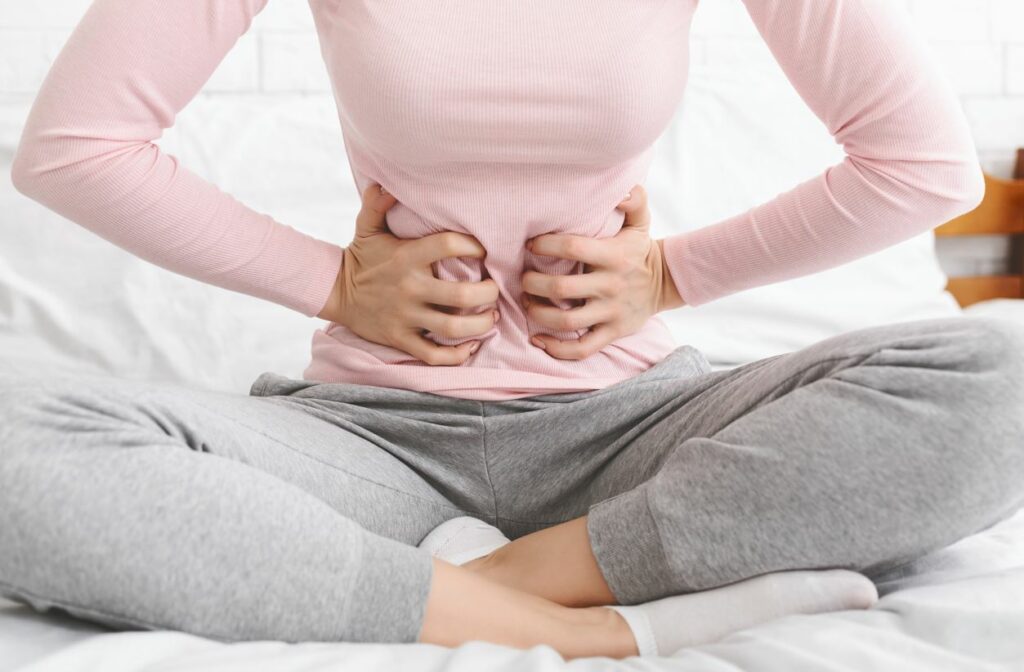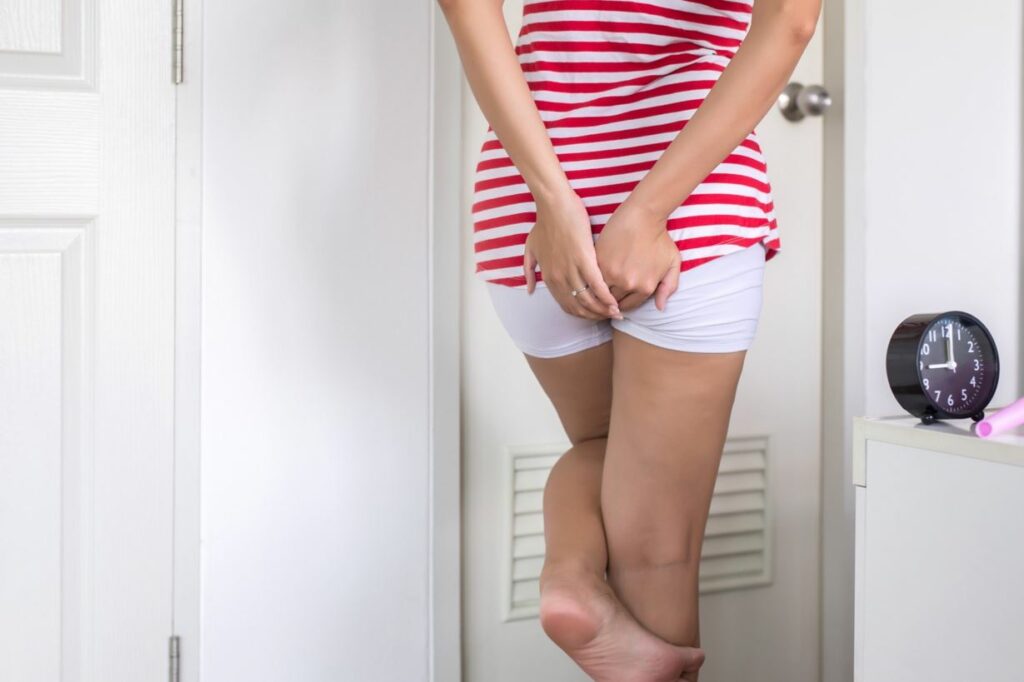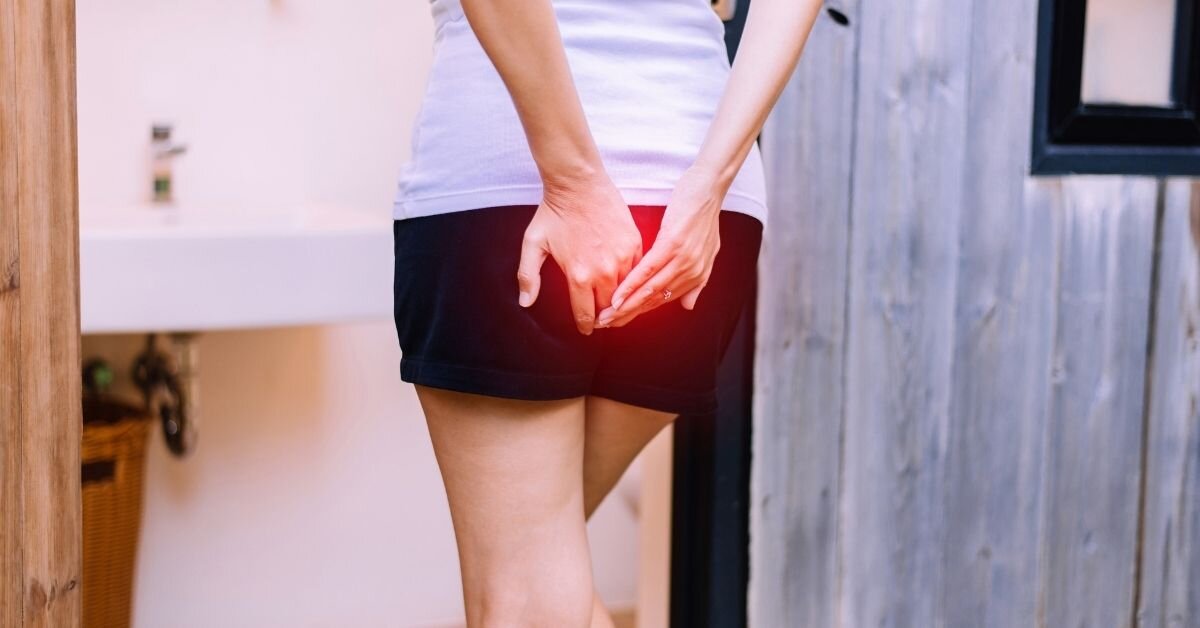The excruciating pain down there while passing bowels, sitting and sometimes while walking.
Yes, you have guessed it right. I am talking about piles, also known as hemorrhoids. It is a prevalent health issue. Unfortunately, studies suggest that by the age of 50, half the population experiences one or more symptoms of piles.
The good news is that hemorrhoids can be managed by simple changes in Lifestyle, Diet, and home remedies.
Our blog will provide you with valuable information on how to ease the discomfort and pain from haemorrhoids and avoid recurrence but first, learn about its symptoms and causes.
What Are Haemorrhoids/Piles?

Hemorrhoids may be defined as inflamed or swollen veins located either around the anus or in the lower part of the rectum.
Haemorrhoids develop due to the increased pressure on the veins in the rectal region, mainly caused due to long-term constipation.
When stress is placed upon these veins, they swell up, and the surrounding tissue or the mass slips downwards.
On passing stool, the swelling further stretches and leads to pain, discomfort, and even rectal bleeding.
Therefore, it is essential to seek medical attention and manage piles in the early stages of haemorrhoids, as bleeding piles may lead to infections.
What Are The Types Of Piles
Based on the location, piles are classified into two types.
Internal hemorrhoid – Internal hemorrhoids are too far inside the rectum that they cannot be felt or seen. An important point to be noted is that inside of the rectum has very few pain-sensing nerves.
This is why internal hemorrhoids may be present without any pain. The only sign of internal hemorrhoids is bleeding.
External hemorrhoids – External hemorrhoids are present around the anal opening. There are many pain-sensing nerves around and anal opening. This is my external hemorrhoids hurts and bleed, especially during defecation.
External hemorrhoids are common and are most troublesome as they Cause pain, discomfort during, and difficulty in sitting. Fortunately, we have treatment for it.
What Are The Symptoms Of Piles?
The symptoms of piles or hemorrhoids include:
- Itching around the anus
- Pain and irritation around the anus
- Soreness and redness around the anus
- Mucus discharge while passing stool.
- Pain and discomfort while sitting
- Painful lump or swelling near or around anus
- Bleeding while passing bowel
- Painful power movements
- Faecal leakage
- Blood on the toilet paper
In rare cases, if piles often occur, the patient may suffer from anemia like symptoms such as pale skin and weakness due to continuous blood loss.
Hemorrhoids are painful, but they are not life threatening. In some cases, hemorrhoids go on there, and in other cases, treatment is required.
What Causes Hemorrhoids
Hemorrhoids are caused due to excessive pressure on the veins around the anus. If your parents had hemorrhoid, you are likely to get them.
During pregnancy, the enlarged uterus exerts pressure on the veins of the colon, causing them to bulge. In addition, anal intercourse may also irritate hemorrhoids. Potential factors responsible for it include:
- Straining while passing stool
- Chronic constipation
- Pregnancy
- Obesity
- Sitting on the toilet seat for a long period
- Consistent heavy weight lifting
- A family history of haemorrhoid
- Anal intercourse
Diagnosis Of Hemorrhoids
To diagnose hemorrhoids, a visual examination of the anus is enough. Your healthcare provider may ask you to get specific investigations done to rule out abnormalities within the anus.
The procedure is known as a digital rectal exam. During the digital rectal exam, the doctor inserts a lubricated and gloved finger into your rectum.
Depending on the risk factors for gastrointestinal diseases, your doctor may ask you to get additional tests such as sigmoidoscopy, colonoscopy, or anoscopy.
These procedures are done with a tiny camera inserted into your rectum to diagnose any abnormality in the rectum or colon.
Anoscopy examines the inside of your anus, and sigmoidoscopy examines the last 40cm of your colon. These tests give a clear view of the inside of your rectum. The treatment options are then decided depending upon the diagnosis.
What Is The Treatment of Hemorrhoids?

By taking proper care of your diet and practicing a Healthy lifestyle, you can manage piles at home. Then, if required, visit your doctor’s office.
To minimize the pain sitz bath is recommended. Fill a tub with warm water and sit to soak your anus in it for at least 10 minutes. Do this a few times a day.
If the pain is unbearable over the counter medicated ointments are given. Over-the-counter topical treatments include hemorrhoid or hydrocortisone cream. Hemorrhoids suppository are available at your nearby pharmacy stores and online.
If you are constipated, you may be given over-the-counter fiber supplements such as methylcellulose and psyllium.
If the above treatments do not help, your doctor recommends rubber band ligation. Rubber band ligation is the procedure that involves placing a rubber band around hemorrhoid to cut it off. This causes loss of circulation to hemorrhoid and forces it to shrink.
Do not try the rubber band ligation procedure by yourself. Instead, the medical profession should perform it strictly.
In cases where rubber band ligation cannot be performed, doctors perform sclerotherapy or injection therapy. In this procedure chemical that causes hemorrhoid to reduce in the size are injected directly into the blood vessels.
Can You Prevent Hemorrhoids
The reoccurrence and worsening of hemorrhoids can be prevented if you bring simple changes in your lifestyle habits and diet.
Do not hold stool. Use the restroom as soon as you feel the pressure to pass bowel.
Include food sources rich in dietary fibers such as whole grains, oatmeal, brown rice, green leafy vegetables, Bran, buckwheat, and fruits.
Increase your water intake to prevent the stool from hardening. Make a habit of drinking at least three liters of water in a day.
Exercise at least for 20 to 30 minutes a day
Avoid sitting for long, specially on hard surfaces.
What Are The Complications Of Hemorrhoids/Piles?
The complications of hemorrhoids are very rare. If piles recur often and are not treated early may lead to iron deficiency anaemia due to blood loss or blood clots in the swollen vein.
With proper treatment, hemorrhoids are likely to improve. Follow the directions provided by your health care provider and maintain a diet regimen and Healthy lifestyle.







